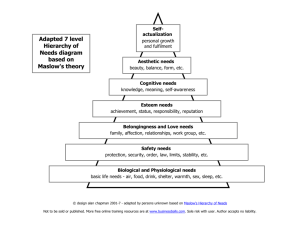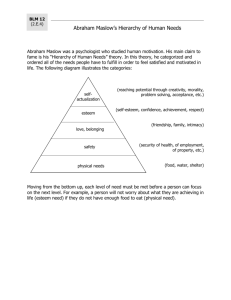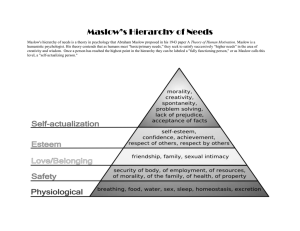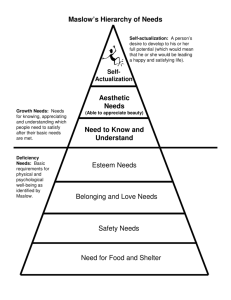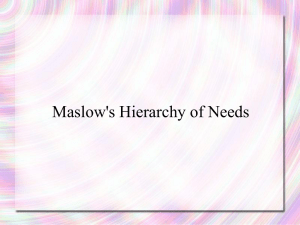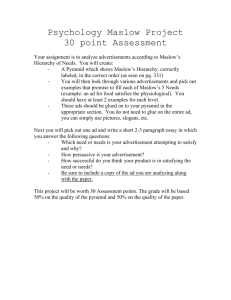maslow's hierarchy of needs Abraham Maslow's Hierarchy of Needs motivational model
advertisement
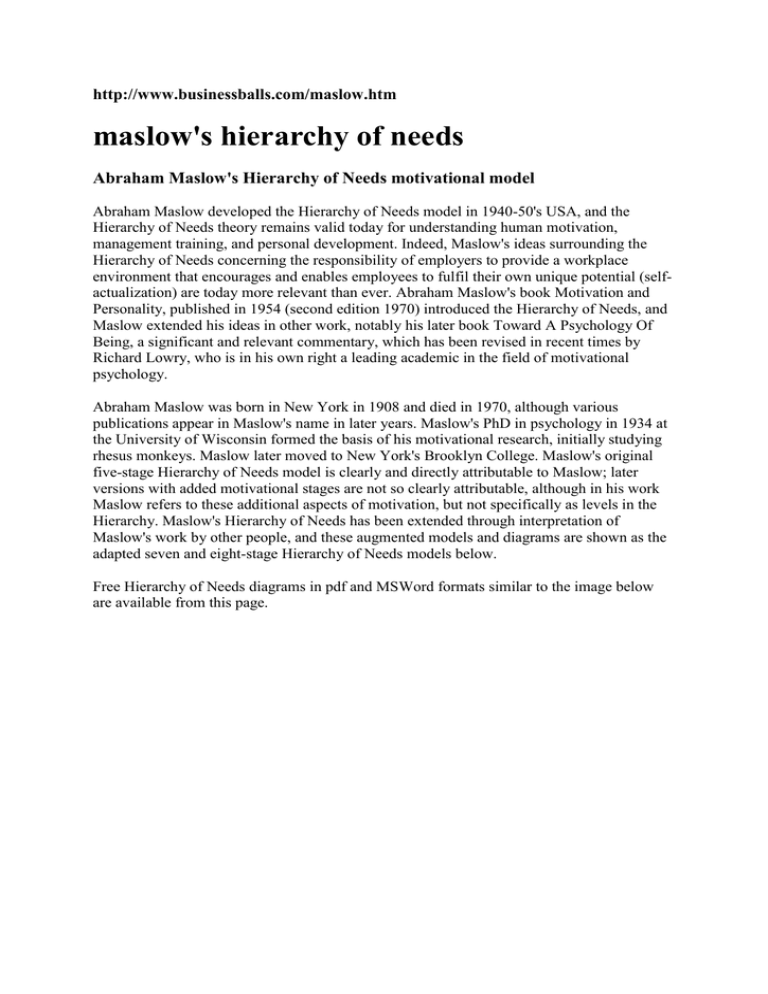
http://www.businessballs.com/maslow.htm maslow's hierarchy of needs Abraham Maslow's Hierarchy of Needs motivational model Abraham Maslow developed the Hierarchy of Needs model in 1940-50's USA, and the Hierarchy of Needs theory remains valid today for understanding human motivation, management training, and personal development. Indeed, Maslow's ideas surrounding the Hierarchy of Needs concerning the responsibility of employers to provide a workplace environment that encourages and enables employees to fulfil their own unique potential (selfactualization) are today more relevant than ever. Abraham Maslow's book Motivation and Personality, published in 1954 (second edition 1970) introduced the Hierarchy of Needs, and Maslow extended his ideas in other work, notably his later book Toward A Psychology Of Being, a significant and relevant commentary, which has been revised in recent times by Richard Lowry, who is in his own right a leading academic in the field of motivational psychology. Abraham Maslow was born in New York in 1908 and died in 1970, although various publications appear in Maslow's name in later years. Maslow's PhD in psychology in 1934 at the University of Wisconsin formed the basis of his motivational research, initially studying rhesus monkeys. Maslow later moved to New York's Brooklyn College. Maslow's original five-stage Hierarchy of Needs model is clearly and directly attributable to Maslow; later versions with added motivational stages are not so clearly attributable, although in his work Maslow refers to these additional aspects of motivation, but not specifically as levels in the Hierarchy. Maslow's Hierarchy of Needs has been extended through interpretation of Maslow's work by other people, and these augmented models and diagrams are shown as the adapted seven and eight-stage Hierarchy of Needs models below. Free Hierarchy of Needs diagrams in pdf and MSWord formats similar to the image below are available from this page. click to enlarge (N.B. The word Actualization/Actualisation can be spelt either way. Z is preferred in American English. S is preferred in UK English. Both forms are used in this page to enable keyword searching for either spelling via search engines.)
